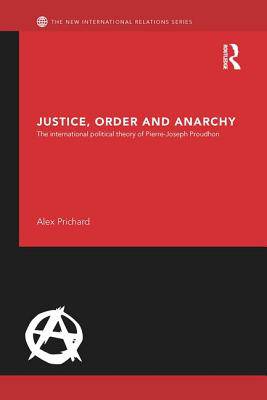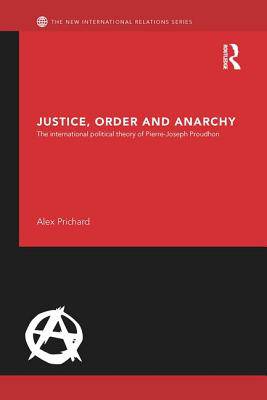
- Retrait gratuit dans votre magasin Club
- 7.000.000 titres dans notre catalogue
- Payer en toute sécurité
- Toujours un magasin près de chez vous
- Retrait gratuit dans votre magasin Club
- 7.000.0000 titres dans notre catalogue
- Payer en toute sécurité
- Toujours un magasin près de chez vous
Justice, Order and Anarchy
The International Political Theory of Pierre-Joseph Proudhon
Alex PrichardDescription
This book provides a contextual account of the first anarchist theory of war and peace, and sheds new light on our contemporary understandings of anarchy in International Relations. Although anarchy is arguably the core concept of the discipline of international relations, scholarship has largely ignored the insights of the first anarchist, Pierre-Joseph Proudhon. Proudhon's anarchism was a critique of the projects of national unification, universal dominion, republican statism and the providentialism at the heart of enlightenment social theory. While his break with the key tropes of modernity pushed him to the margins of political theory, Prichard links Proudhon back into the republican tradition of political thought from which his ideas emerged, and shows how his defence of anarchy was a critique of the totalising modernist projects of his contemporaries. Given that we are today moving beyond the very statist processes Proudhon objected to, his writings present an original take on how to institutionalise justice and order in our radically pluralised, anarchic international order.
Rethinking the concept and understanding of anarchy, Justice, Order and Anarchy will be of interest to students and scholars of political philosophy, anarchism and international relations theory.
Spécifications
Parties prenantes
- Auteur(s) :
- Editeur:
Contenu
- Nombre de pages :
- 226
- Langue:
- Anglais
- Collection :
Caractéristiques
- EAN:
- 9781138890503
- Date de parution :
- 22-05-15
- Format:
- Livre broché
- Format numérique:
- Trade paperback (VS)
- Dimensions :
- 156 mm x 234 mm
- Poids :
- 340 g

Les avis
Nous publions uniquement les avis qui respectent les conditions requises. Consultez nos conditions pour les avis.






